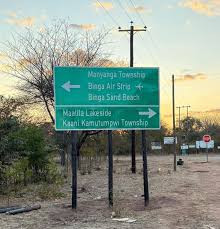
Talent is what makes teams effective. A leader has to discover, develop, and delegate the right talent. Our columnist Jonah Nyoni (ND) sat down with Stevenson Dhlamini (SD), a lecturer at the National University of Science Technology and deputy director in the Ministry of Industry and Commerce, Bulawayo Province, to share leadership lessons shaped by both academic rigor and practical experience. Find excerpts below:
ND: Why is talent identification important?
SD: Well, I believe that everyone was designed and created for a purpose, and that purpose is built on the talents that they are endowed with. It is those talents that they are endowed with that reflect the purpose of that person in this world.
So, without identifying their talent or recognising the talent in a person, a leader does not fully maximise the potential of their team, which makes the organisation perform at a sub-optimal level. That's why we end up seeing the 20-80 rule; that 80% of the work gets done by 20% of the people simply because the leader could not identify and place the people whose talents are aligned with their duties.
ND: So then the simple question becomes, what is talent?
SD: Talent is a God-given gift that enables you to do a task with ease but with impact. You find someone performing a task with great ease when you look at them performing it, but the impact is recognisable. The impact is significant, and you always marvel and say, 'You always make this look very easy when you do it'. That is because they are talented.
It is not because of years of experience, though it can be perfected with experience, but it is an innate thing, it's an inborn thing that a person is gifted with from birth.
ND: So, as a follow-up, how do I continuously learn and hone my skills to improve my talent?
- Samkeliso livens up girls, women
- Samkeliso livens up girls, women
- Amplified Silence earns Masapa global accolade
- Amplified Silence earns Masapa global accolade
Keep Reading
SD: Well, the important thing is to identify what talent you have. You probably have more than one, and then you identify the one that aligns with the nature of work that your character is doing. For example, I'm a teacher. My talent is talking. So how do I hone that particular talent? I pay attention to certain inspirational speakers. I follow up on them, how they present. I listen to their skills. I look for ways to improve my talent by, for example, if I listen to a speaker who emphasises the role of tone. You know, most of us, as African speakers, we say tone does not matter as long as I get my point across. But when we listen to another speaker, we also understand that the tone matters to the audience. How you vary your tone, how you mould your tone, then it increases your impact. But the talent is already there. Speaking is already there, I've identified. But how do I improve it? Also, you could improve it by following what Malcolm Gladwell defined as the law of 10 000 hours. He said if you want to be in the top 1% of any field, you have to spend a minimum of 10 000 hours practicing in that particular discipline. That is what sets you apart. So I also subscribe to that. Though not as the ultimate tool, it's a very effective tool. But it does make you better than perfect. So in talent identification, one of the factors is that a leader might see more talent than they see in someone.
ND: How do I deal with people who are more talented than me as a leader?
SD: Well, I think one of the critical factors that leaders need to deal with is insecurities. Insecurities come from different experiences. So as a leader, it's important to identify your insecurities and then be cautious of them. Because once you are aware of them, you don't need to deal with them. You just need to be aware of them and have a way of handling them. As a leader, I need to look at my teammates as an opportunity to further my field, to further my impact. It's an opportunity to mentor. An effective mentor always produces someone better than themselves because you are helping that person avoid the mistakes that you've made. So they are likely to have a double portion of what you have. So, unless you have insecurities, you will feel like those are threats. And it is normal to have insecurities, but it is not normal to entertain them. I believe that as a leader, you can be cautious of those. And then try to talk yourself into accepting that the young leaders of tomorrow need to be better than us. And the moment they do so, they will always remember to mention you in the places where they go.
ND: So in other terms, you are simply saying a leader has to be honourable and be willing to say, guys, you are more talented than me. Help make this thing bigger together?
SD: Yes. The moment you can do so, then... I've seen it with Sensei; every student is more effective than them. They may possess a better talent in a specific task. But overall, as a leader, they may not be better than you. But you are identifying a specific area where you can nurture them and encourage them, and grow their talent in that particular skill. That could also hone you as well. But overall, you will still present yourself as a more holistic leader because you have other qualities beyond that particular talent that make you a leader.
ND: One of the critical things in any organisation is the ability to harvest ideas. How do I, as a leader, effectively harvest ideas from different talents, different thought lines, different diversities, or different intuitive abilities?
SD: I think the most important skill is listening. As a leader, pay attention, yes, paying attention and being mindful of the subtle words or behaviours among your team members. The more you listen, the more you present a safe space for people to express who they truly are. That is how you will be able to allow or create a breeding ground for the germination of the talents. Once you see them sprouting, allow them to grow beyond just the sprout so that you can identify what type of plant they are. So once they have blossomed or are about to blossom, you can identify what kind of talent they are. You know what nutrition to feed those plants, which are the nutrients for them to keep growing and create the environment for them to thrive. If they are mushrooming in the wrong place, transplant them. For example, you see someone who is very talkative, but they are in accounting. So, beyond their degree, look at their innate talent. Transplant them into marketing. Watch them thrive.
ND: How do we build effective teams? A team is a collection of different talents. How do we manage these talents in a team?
SD: Number one, effective teams, and then how do we manage the talent within a team space? I think building effective teams starts with effective communication. What binds the team together is their ability to communicate. Once there is effective communication, I look at the people who built the Tower of Babel in Biand ble (Genesis 11: 1-9. They were communicating. They had effective communication to build such a structure. So communication, first of all, is key. That includes communicating a clear vision that everyone builds towards. Put the carrot clearly in front of them, not the cart. Some people, most of the time, get there and say, Remember, we are a team. That's the cart. Where is the carrot? Where is the donkey to pull the cart? So let's not put the cart before the donkey. So let's put the donkey in front there, which is the vision. Put the incentives in front of the vision. Say, once we achieve that vision, this is the incentive. Let those be clear.
Let the ordering of those be clear. Then I tell you, naturally, teams will gravitate towards each other. The beauty about talent is that it gravitates towards each others. It follows the law of diffusion. They will naturally find each other.
ND: So what is this law of diffusion?
SD: The law of diffusion is generally a movement from an area of higher concentration to a region of lower concentration. So if they are highly concentrated in competing, once the law of diffusion is set in, they can identify opportunities within the team, and they will diffuse into that. And once they diffuse into that, you find that the distribution of the talent suddenly becomes a normal distribution.
On keeping the team together and avoiding conflicts, I think it's important for a leader to identify healthy and unhealthy conflicts. Absence of conflict does not mean unity. It may mean silent disgruntlement, which may lead to absenteeism and, in turn, lower productivity. So encourage a healthy conflict. Just like we work with opposing feet, an organisation moves forward with opposing views. So it is important to differentiate between negative conflict and positive conflict. Encourage productive, healthy debate. Encourage the prevalence of opposing opinions and, in the process, teach them how to identify where you don't agree with an opinion and where you don't agree with a person. The two are different. You may disagree with a person just because you view them as being choleric automatically, which has clouded your perception of their view. So in a meeting, for example, when somebody responds to what someone has uttered, encourage them to say, “I want to speak to this point.” Not, I want to reply so-and-so, or say the person feels safer to say a point and watch their point being improved or being challenged, not themselves being challenged. So it encourages a healthy debate, a healthy discourse amongst team members. That healthy discourse builds a very powerful team that encourages idea generation.
ND: You talked about meetings, and that includes boardroom dynamics. So what's the importance of emotional intelligence in these meetings?
SD: Emotional intelligence is key, especially from the person who facilitates the meetings in the boardroom. Being able to identify different personalities and how they manifest themselves, and how you best respond to different personalities. The boardroom is like a drinking place for all animals. You know, you meet the elephants, the lions, the hares, etc. So it takes emotional intelligence to be able to appreciate how you respond to a choleric personality, to a personality that is a bit introverted. So the facilitator must be cognisant of the five top traits of personalities (openness, conscientiousness, extraversion, agreeableness, and neuroticism). Emotional intelligence is key because human beings are sensory beings. So if you continually just appeal to their intellect, ignoring their heart, you have an incomplete team.
- Jonah Nyoni is an author, speaker, and leadership trainer. Follow Jonah on Twitter@jonahnyoni. WhatsApp: +263 772 581 918










